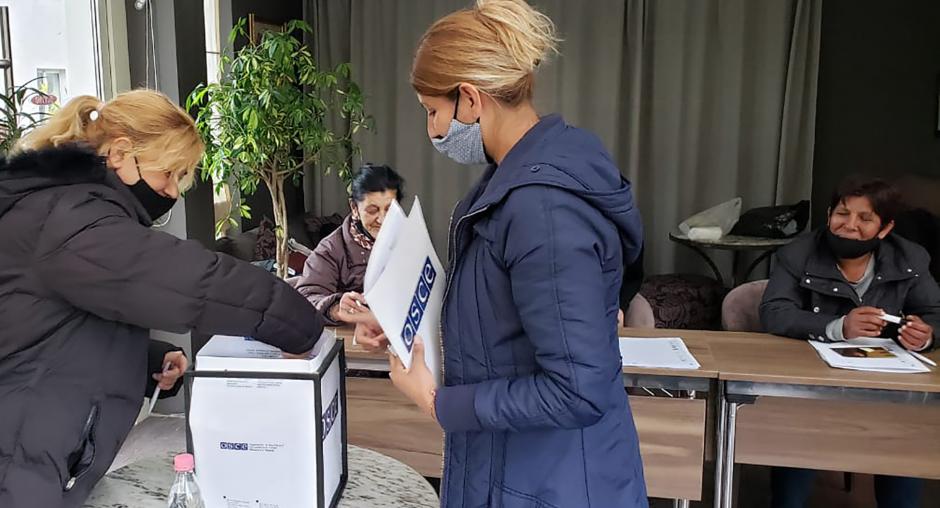OSCE Presence concludes national voter education campaign ahead of parliamentary elections in Albania

On 22 April 2021, the OSCE Presence in Albania concluded a three-month national voter education campaign ahead of the 25 April parliamentary elections. The campaign — conducted in close co-operation with the Central Election Commission — aimed at informing citizens about Electoral Code amendments, and encouraged their participation in the elections.
As part of the campaign, the Presence prepared two informative TV spots calling on citizens to check the validity of their identification documents and the accuracy of their data on the voter lists, as well as informing them about election-related criminal offences. National public and private TV stations broadcasted the spots and they were shared through social media.
To enhance the awareness of Roma and Egyptian women and youth, the Presence organized online and in-person voter education sessions, and prepared podcasts focused on promoting participation, providing information on the legal changes, and voting procedures.
The campaign also targeted youth — including first-time voters and young people with visual impairments — to equip them with an understanding of the election process. They discussed fake news and its effects on elections and media influence on voters’ perceptions and choices. Additionally, the Presence organized four online workshops with journalists covering the electoral campaign from both public and private media. They focused on the novelties of the upcoming elections, and on an enabling environment for journalists to report on election-related issues in an accurate, impartial and balanced way.
More than 300 participants attended the online and in-person informative sessions and training courses.
The campaign was implemented under the Presence’s mandate to assist Albania in developing democratic institutions and promoting the rule of law. Specific campaign activities were organized as part of the Presence’s “Support to parliament and civic education in Albania’’, which is supported by the Swiss Agency for Development and Cooperation SDC.
